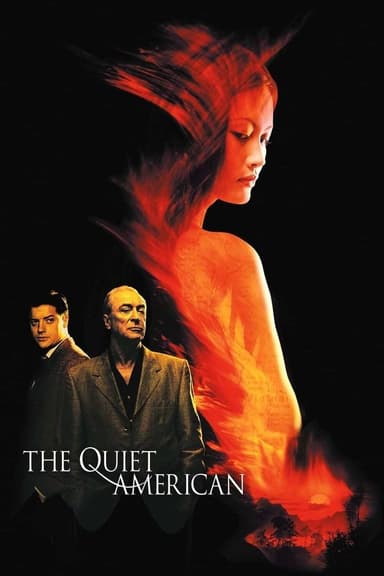
Our Kind of Traitor
2016 • Thriller • R
A young Oxford academic and his attorney girlfriend holiday in Morocco. They bump into a Russian millionaire who owns a peninsula and a diamond watch. He wants a game of tennis. What else he wants propels the lovers on a tortuous journey to the City of London and its unholy alliance with Britain's intelligence establishment, to Paris and the Alps.
Runtime: 1h 48m
Why you should read the novel
If you loved the tense, fast-paced story of 'Our Kind of Traitor' on screen, you'll find even more depth in John le Carré's original novel. Enriched with complex character backgrounds and richly evocative settings, the book immerses the reader in a nuanced exploration of loyalty, betrayal, and global politics that only le Carré can deliver. The author’s piercing psychological insight and masterful pacing allow for a more profound emotional experience than the film can offer.
Reading the novel provides the opportunity to truly inhabit the minds of Perry, Gail, Dima, and the other major players, revealing their private doubts, fears, and motivations in ways that even the best performances cannot fully capture. John le Carré’s prose brings to life the political and moral stakes underlying each choice, making the suspense all the more intense and personal.
Moreover, the book’s subtlety and slow-burn tension allow you to savor every twist and revelation. Readers who want more than surface thrills will appreciate how le Carré deftly weaves social commentary and personal drama, offering insights into both grand international conflicts and intimate relationships. For fans of thoughtful fiction, the novel is an experience not to be missed.
Adaptation differences
One of the main differences between the movie adaptation and John le Carré's novel lies in the characterization and the narrative focus. The book takes a more measured, introspective approach to Perry and Gail’s relationship, exploring their personal struggles and moral dilemmas in detail, while the film often streamlines these internal tensions for the sake of pacing and visual drama. As a result, readers get a deeper understanding of their motivations in the novel than viewers do in the adaptation.
Another significant difference is the treatment of Dima, the Russian gangster. In the novel, Dima’s vulnerability and desperation are explored more subtly; the book provides a more intimate look at his paranoia and anguish, reflecting the constant threat he faces. The film, by necessity, condenses some of these elements and leans into a more action-oriented portrayal, which can diminish the emotional complexity of his predicament.
The novel also takes greater liberties with the structure of the plot, delving into the procedures of British intelligence and the layers of bureaucracy involved in defection and witness protection. The adaptation trims or omits many such details for narrative simplicity, focusing instead on set pieces and the central dynamic between the main characters. This changes the emphasis from an intricate espionage puzzle to a more personal and direct thriller.
Finally, the tone between the two works differs considerably. John le Carré's writing imbues the story with a sense of melancholy and ambiguity, reflecting his trademark cynicism toward governmental institutions and the world of espionage. The film, while still suspenseful and dark, can't fully reproduce the nuanced ambivalence and meditative pacing that make the novel distinctively resonant and thought-provoking.
Our Kind of Traitor inspired from
Our Kind of Traitor
by John le Carré













